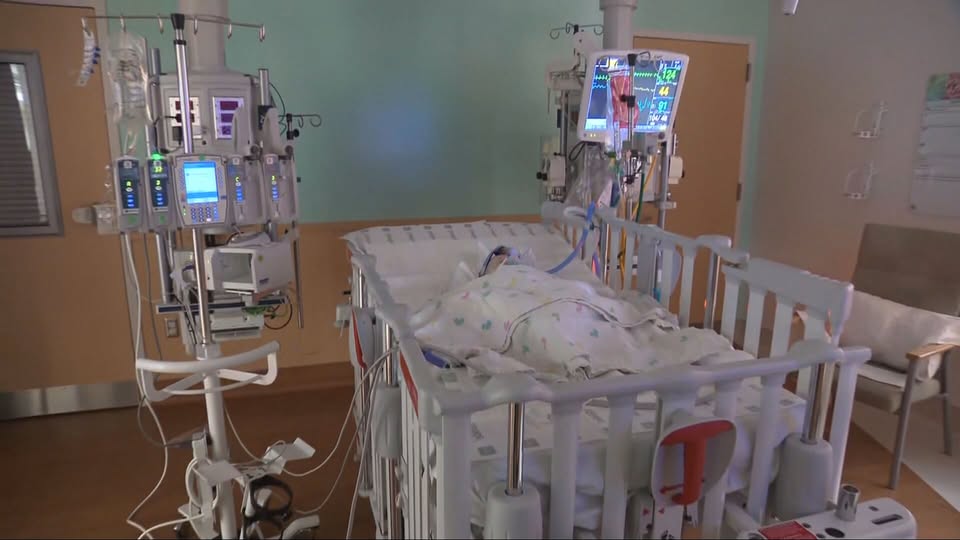CINCINNATI (WKRC) — Hamilton County is seeing a concerning increase in Respiratory Syncytial Virus (RSV) in children.
Hamilton County is seeing a concerning increase in Respiratory Syncytial Virus (RSV) in children. The virus can cause severe illness and may be deadly if untreated in children. (WKRC, Provided)
Hamilton County Public Health Medical Director Steve Feagins said you typically start seeing RSV ramp up in children and kids, resulting in some hospitalizations in late November or December.
“Last year, we saw it early. This year, we saw it even earlier, resulting in, like, September beginning to get some admissions and hospitalizations at Cincinnati Children’s,” said Dr. Feagins.
He pointed to a reason why he thinks hospitalizations for RSV started so early.
“It’s a combination of better testing or more testing and maybe some more, you know, folks being out a bit more and getting and getting more exposures and travel and things like that,” said Dr. Feagins.
The latest numbers from the Ohio Department of Health showed 32 RSV hospitalizations in Hamilton County at the end of last week.

Of those 32 hospitalizations, 23 of those were children, ranging from newborns to four years old.
“It causes a pretty significant pneumonia in these little kids and a lower respiratory tract infection we call it and can result in low oxygen, the need for some supportive care, and, to some extent, oxygen and hospitalization,” said Dr. Feagins. “In fact, you will see in pediatrics more RSV hospitalizations than influenza and COVID combined except during the main COVID season right now, and so, it is a—it can be a big deal.”
He said that the virus also affects older adults and people who have certain medical conditions, like chronic heart or lung disease or weakened immune systems.
With the holidays approaching, there are several ways to prevent RSV:
- Talk with your doctor about an RSV immunization. Most adults over age 50 with increased health risks are eligible annually, and the vaccine is available at most clinics.
- If you’re pregnant, you likely are eligible to receive a maternal RSV immunization, which also will protect most fetuses. After birth, some babies may be eligible to receive a long-lasting antibody for protection.
- Wash your hands frequently and thoroughly with warm water and soap — especially when gathering with others, after coughing or sneezing, and before handling food.
- Fully cover your mouth when coughing or sneezing.
- Regularly clean and disinfect surfaces that are frequently touched, such as countertops, doorknobs, and light switches.
- Increase the fresh air circulation by opening windows, running an air purifier, or moving a party outside in good weather.
- If you’re not feeling well, stay home to avoid passing the virus to others.
- Watch for early symptoms of RSV, such as a runny nose, cough, congestion, or fever.
- Seek emergency care for children and older adults who have difficulty breathing, aren’t drinking enough fluids, and aren’t eating much



